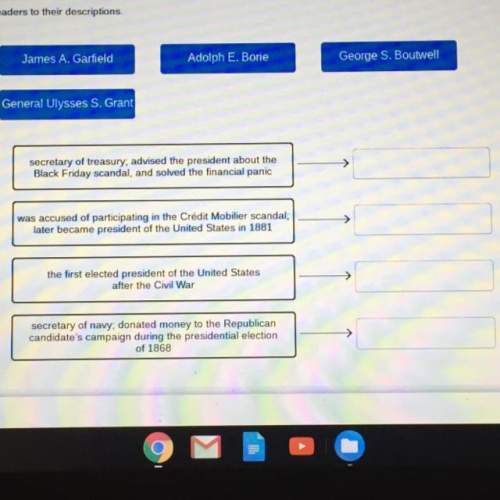
Answers: 2
Another question on History

History, 21.06.2019 19:30
In the decision for dred scott vs.sanford, (1857) in which a slave petitioned for his freedom in a st. louis court, on the grounds that his owner had taken him into free territory, and thus he ought no longer be regarded as possessing "slave" status, but should be regarded as a free man, the court decided as follows (excerpt): "in the circuit courts of the united states, the record must show that the case is one in which by the constitution and laws of the united states, the court had jurisdiction--and if this does not appear, and the court gives judgment either for plaintiff or defendant, it is error, and the judgment must be reversed by this court--and the parties cannot by consent waive the objection to the jurisdiction of the circuit court. a free negro of the african race, whose ancestors were brought to this country and sold as slaves, is not a 'citizen' within the meaning of the constitution of the united states. when the constitution was adopted, they were not regarded in any of the states as members of the community which constituted the state, and were not numbered among its 'people or citizen.' consequently, the special rights and immunities guarantied to citizens do not apply to them. and not being "citizens" within the meaning of the constitution, they are not entitled to sue in that character in a court of the united states, and the circuit court has not jurisdiction in such a suit. the only two clauses in the constitution which point to this race, treat them as persons whom it was morally lawful to deal in as articles of property and to hold as slaves. since the adoption of the constitution of the united states, no state can by any subsequent law make a foreigner or any other description of persons citizens of the united states, nor entitle them to the rights and privileges secured to citizens by that instrument." why does the court say that the petitioning party in this case had no right to sue for his freedom? a) because he is too young b) because he is from a different state c) because he is "of the african race" with enslaved ancestors d) because he is, properly speaking, within his owner's jurisdiction
Answers: 1

History, 21.06.2019 20:00
One day as your professor is driving to work, another driver runs through a red light and hits his car. the professor is shaken up but survives the accident. however, the next time he starts to enter the intersection,he becomes nervous and fearful. soon,he starts going to work via another route to avoid the intersection even though this route adds twenty minutes to his commute in each direction. according to the principles of classical conditioning, why does the professor become scared of the previously harmless intersection? what can he do about this, as going via other route is very time consuming? be specific. break down the situation into its parts and show how the principles of learning apply.
Answers: 2

History, 21.06.2019 23:00
Which sentence best describes the effect of the bill of rights? a.it gave parliament the right to elect a successor when a monarch died.b.it ensured that no monarch could rule without parliament.c.it guaranteed all people the rights of liberty and property.d.it defined the rights of the officials of the church of england.
Answers: 1

History, 22.06.2019 04:30
Aclaim about history is most likely not valid if it has which of these characteristics?
Answers: 1
You know the right answer?
When and where was Harappan Civilization discovered?...
Questions

Biology, 25.06.2019 14:00

English, 25.06.2019 14:00

English, 25.06.2019 14:00

History, 25.06.2019 14:00


English, 25.06.2019 14:00


History, 25.06.2019 14:00





History, 25.06.2019 14:00






History, 25.06.2019 14:00




